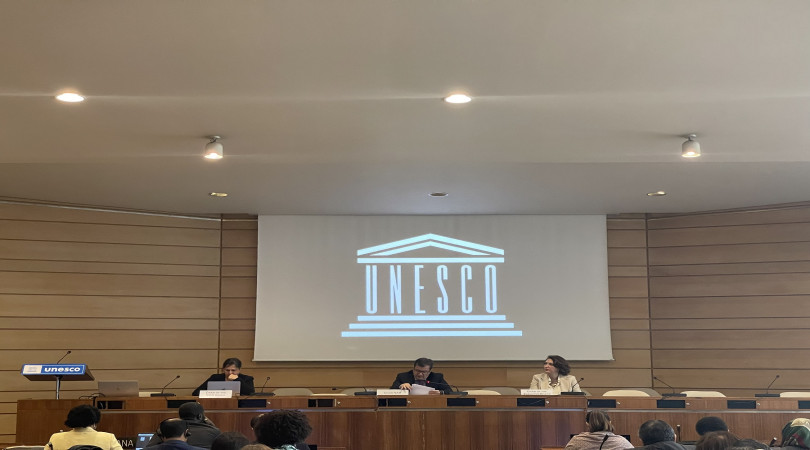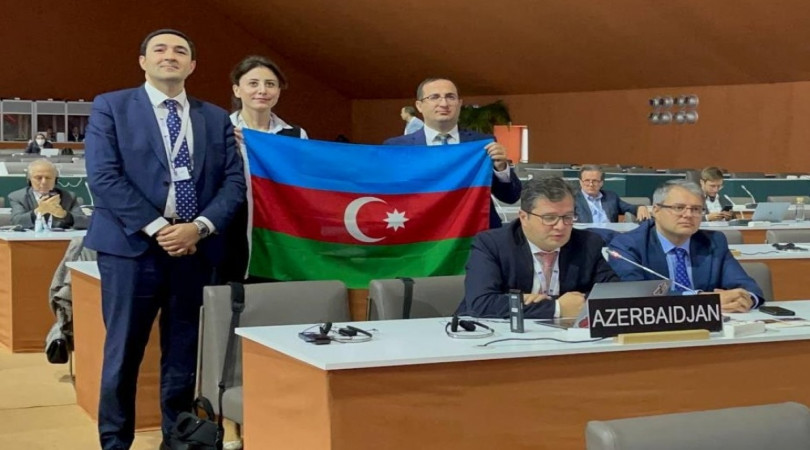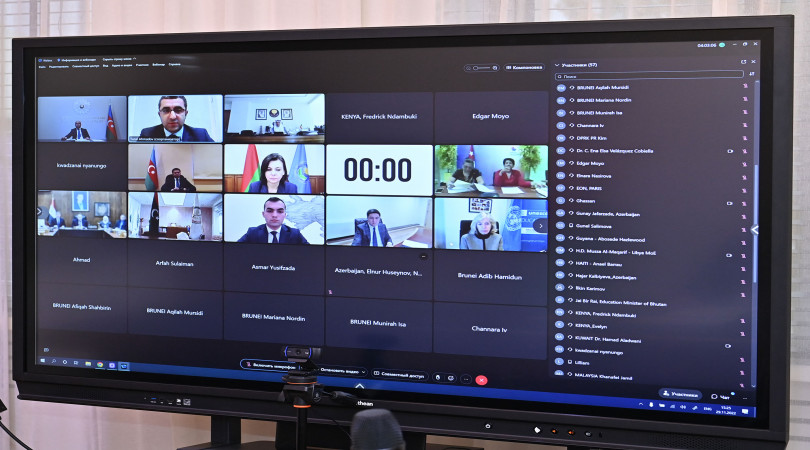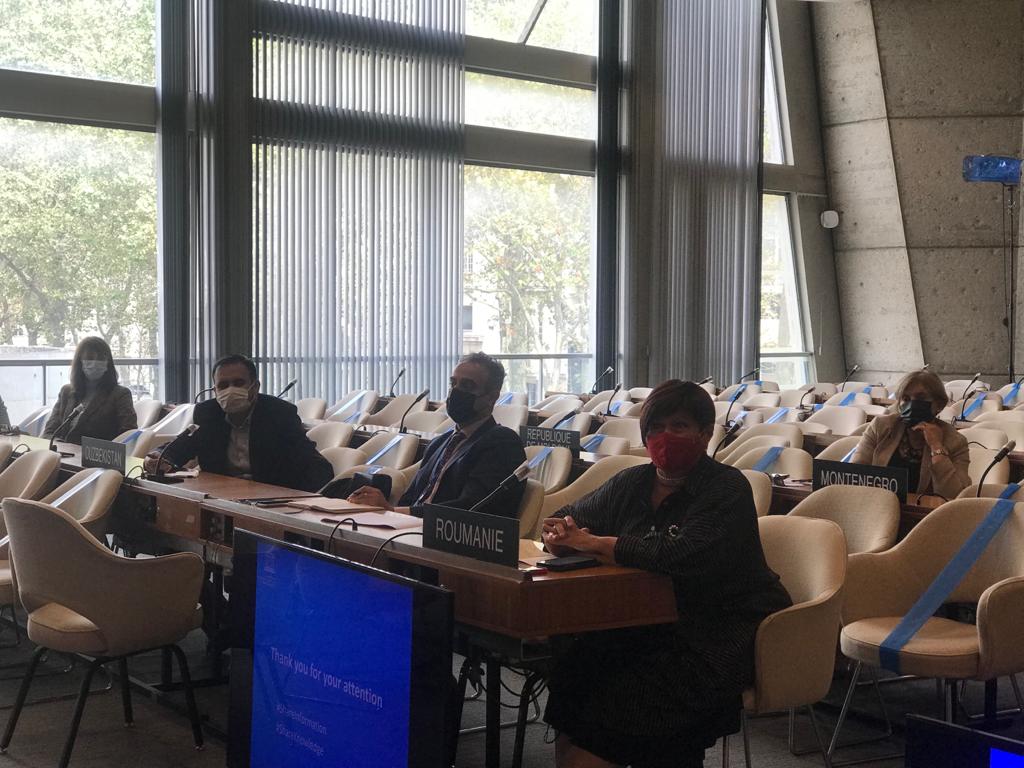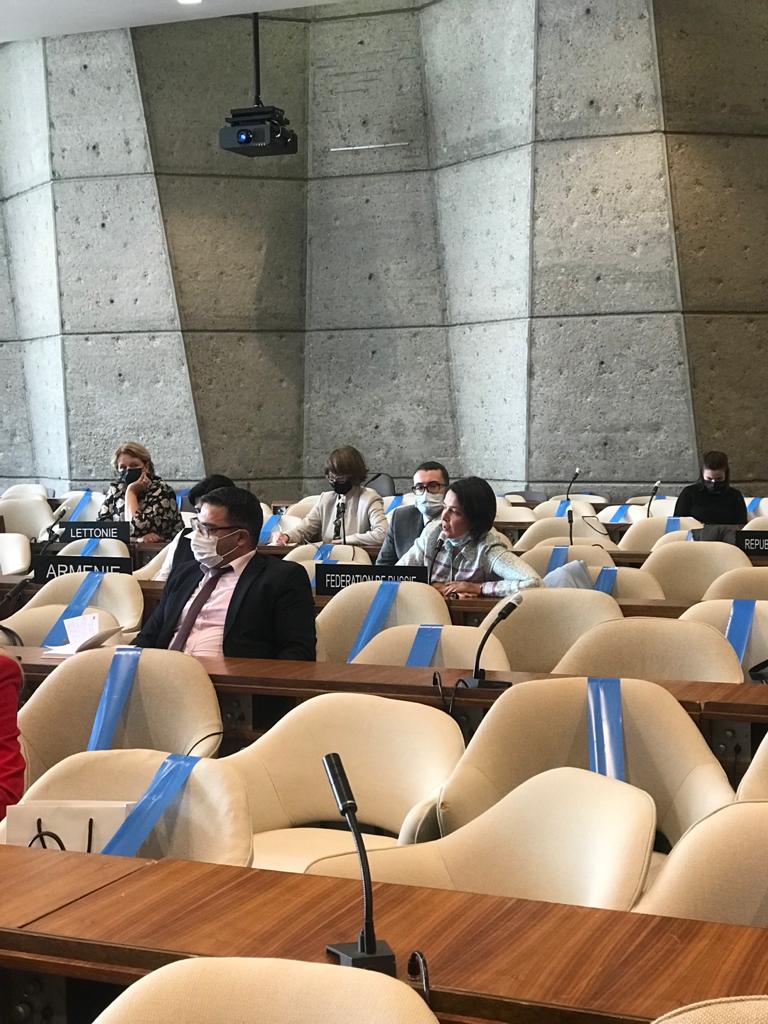Meeting of the UNESCO Eastern European States Electoral Group was held under the chairmanship of Azerbaijan
The meeting of the UNESCO Eastern European States Electoral Group chaired by Azerbaijan was held at UNESCO Headquarters.
The meeting was opened by the Permanent Delegate of Azerbaijan to UNESCO, Ambassador Elman Abdullayev, who presented the Agenda.
After the adoption of the Agenda, Assistant Director-General of UNESCO for Communication and Information Mr. Tawfik Jelassy, Chairperson of the Open Ended Working Group of the Executive Board on Geographical Distribution, Permanent Delegate of the People's Republic of China to UNESCO, Ambassador Yang Jin and Chief of the Executive Office of UNESCO’s Social and Human Sciences Sector Mariagrazia Squicciarini took the floor.
Assistant Director-General of UNESCO for Communication and Information Mr. Tawfik Jelassy, stressed the importance of communication and the use of information for sustainable development. He spoke about the rapid digital transformation, COVID-19 crisis, promotion of the free flow of ideas in the face of challenges, the adoption of a holistic approach to the future as a part of global efforts to “build a better future” in the aftermath of the coronavirus pandemic, the implementation of information development as a public benefit, the achievement of the Sustainable Development Agenda 2030, using communication and information.
ADG/CI briefed about the promotion of multilingualism and language diversity, introduction of the Atlas of the world languages, preparations for the International Decade for Indigenous Languages (2022-2032), fostering innovation and technology for sustainable development, as well as he gave an information about the relevant projects in Eastern Europe.
Speaking about the problems of increasing disinformation and hate speech during the pandemic, the Assistant Director-General emphasized the significance of ensuring media and information literacy to overcome these problems.
Chairperson of the Open Ended Working Group of the Executive Board on Geographical Distribution, Permanent Delegate of China to UNESCO, Ambassador Yang Jin touched upon the issue of geographical distribution concerning nationality of staff members of UNESCO Secretariat, which has been historically and frequently discussed by the Governing Bodies of UNESCO, dating back nearly 60 years. He noted that the Executive Board convened a Working Group on this issue, a Geographical Distribution Action Plan was developed as a part of UNESCO’s Human Resources Management Strategy, which was thereafter extended in the HR Strategy of 2017-2022.
Despite actions taken over the years, there has been insufficient progress, and further efforts were needed to improve Geographical Distribution. He presented the indicators of representation of Member States in the Secretariat of the Organization, noting that some countries are very poorly represented.
The Ambassador noted that the Bureau of Human Resource Management acted as Secretariat to the Working Group. He gave a comprehensive information about the various measures taken by the Secretariat to improve the "Geographical Distribution", as well as recruitment programs, the improvement of recruitment policy, and presented the main views and opinions of the Working Group.
Chief of the Executive Office of UNESCO’s Social and Human Sciences Sector Mariagrazia Squicciarini talked about the pace and scale of advances in the sphere of Artificial Intelligence, its positive and negative implications. She also recalled UNESCO's Recommendations on the Ethics of Artificial Intelligence.
Afterwards, various candidacies of the Eastern European States group, cultural events and a number of issues of mutual interest were discussed.

